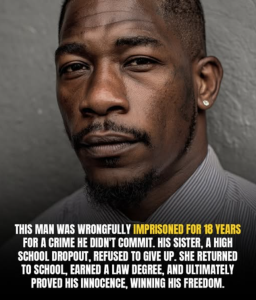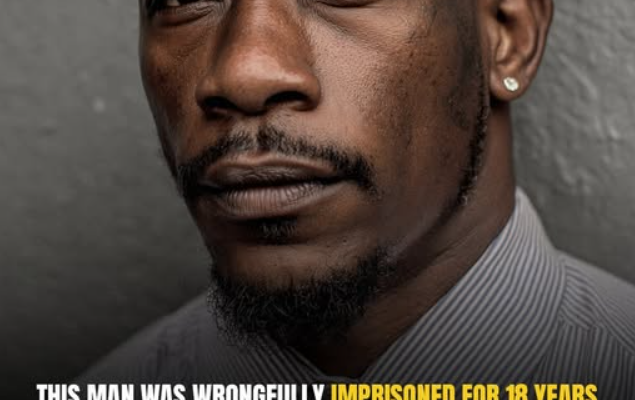A Sister’s Fight for Justice: How Love Freed an Innocent Man After 18 Years
In the quiet town of Ayer, Massachusetts, the rhythm of life was often punctuated by hardship. For Betty Anne Waters and her brother Kenny, childhood was a patchwork of resilience stitched together by laughter, loyalty, and the kind of bond that only siblings forged in adversity can understand. They were inseparable—Betty Anne, the fierce protector, and Kenny, the charming troublemaker with a heart too big for his own good.
But in 1983, that bond was tested in a way neither could have imagined. Kenny Waters was arrested and later convicted for the brutal murder of Katharina Brow, a crime he swore he didn’t commit. The evidence was thin, the witnesses unreliable, and the trial swift. Kenny was sentenced to life in prison without parole. For many, that would have been the end of the story. But for Betty Anne, it was the beginning of a quiet revolution.
She was a high school dropout, a single mother working as a waitress. She had no legal training, no political connections, and no money. What she did have was an unshakable belief in her brother’s innocence and a love that refused to be silenced. Betty Anne made a decision that would redefine her life: she would become a lawyer—not to practice law, but to free Kenny.
The journey was long and grueling. She earned her GED, then a bachelor’s degree, and finally a law degree—all while raising her children and working nights. Her days were filled with textbooks and court transcripts; her nights with exhaustion and quiet resolve. She studied not just the law, but the system that had failed her brother. She learned its language, its loopholes, and its blind spots.
Years passed. Kenny remained behind bars, growing older in a cell that stole his youth but not his hope. Betty Anne combed through evidence, tracked down witnesses, and eventually partnered with the Innocence Project. Together, they unearthed a forgotten piece of evidence: DNA from the crime scene that had never been tested. It had been preserved for nearly two decades, waiting for someone to care enough to look.
In 2001, the results came back. The DNA did not match Kenny. It was the proof they needed. After 18 years of wrongful imprisonment, Kenny Waters was exonerated and released. The courtroom that had once condemned him now bore witness to his freedom. Betty Anne stood beside him, not as a lawyer, but as a sister who had rewritten the ending.
But life, as it often does, offered a bittersweet coda. Just six months after his release, Kenny died in a tragic accident. He was 47 years old. The world he had reentered was still new to him—full of wonder, possibility, and the simple joys of freedom. Betty Anne later said, “Kenny had the best six months of his life.” It was a brief chapter, but one written in light after so many years of darkness.
Their story became the basis for the 2010 film Conviction, starring Hilary Swank as Betty Anne and Sam Rockwell as Kenny. The movie captured the emotional gravity of their journey, but the real power lay not in Hollywood dramatization—it lay in the quiet acts of love, the rituals of persistence, and the dignity of belief.
Betty Anne Waters didn’t just fight the legal system; she fought despair, bureaucracy, and the erosion of time. Her story is not just about justice—it’s about legacy. It’s about the kind of love that doesn’t shout, but endures. The kind that shows up every day, even when the world stops watching.
In a society often obsessed with grand gestures and public victories, Betty Anne’s fight reminds us of the sacred power of private conviction. She didn’t march in protests or give fiery speeches. She studied. She waited. She believed. And in doing so, she transformed not just her brother’s fate, but the very idea of what justice can look like when it’s fueled by love.
Her journey also exposed the cracks in the criminal justice system—the reliance on faulty testimony, the absence of DNA testing, and the devastating impact of wrongful convictions. Kenny’s case was not an anomaly; it was a mirror held up to a system that too often confuses closure with truth. The Innocence Project, which played a pivotal role in Kenny’s exoneration, continues to fight for those still trapped in similar nightmares.
But beyond the legal implications, this story resonates because it’s deeply human. It’s about a sister who refused to let her brother be forgotten. It’s about the rituals of care—the letters, the visits, the sleepless nights spent reading case law. It’s about the emotional resonance of everyday acts that, over time, become extraordinary.
In the end, Betty Anne Waters didn’t just free her brother. She gave us a blueprint for what it means to love with conviction. She showed us that justice isn’t always loud—it can be quiet, persistent, and deeply personal. And she reminded us that sometimes, the most powerful resistance comes not from institutions, but from individuals who choose to believe in each other when no one else will.


